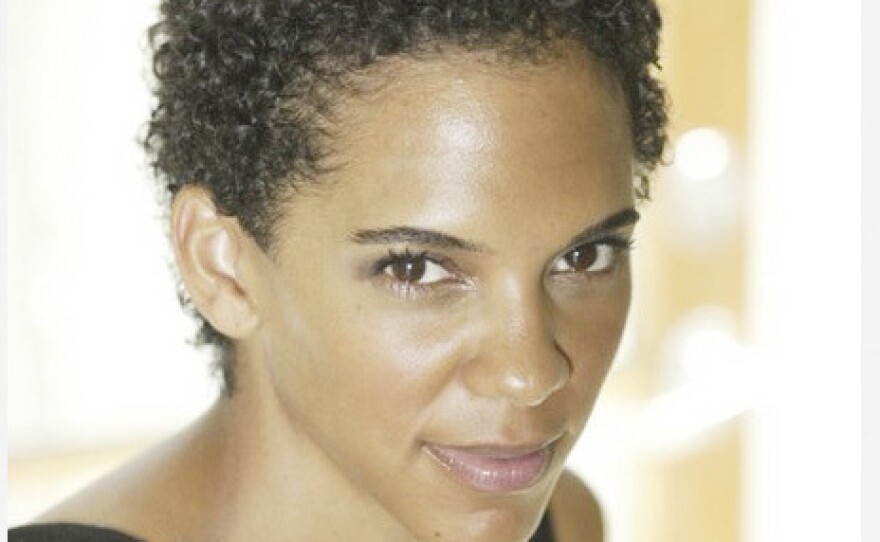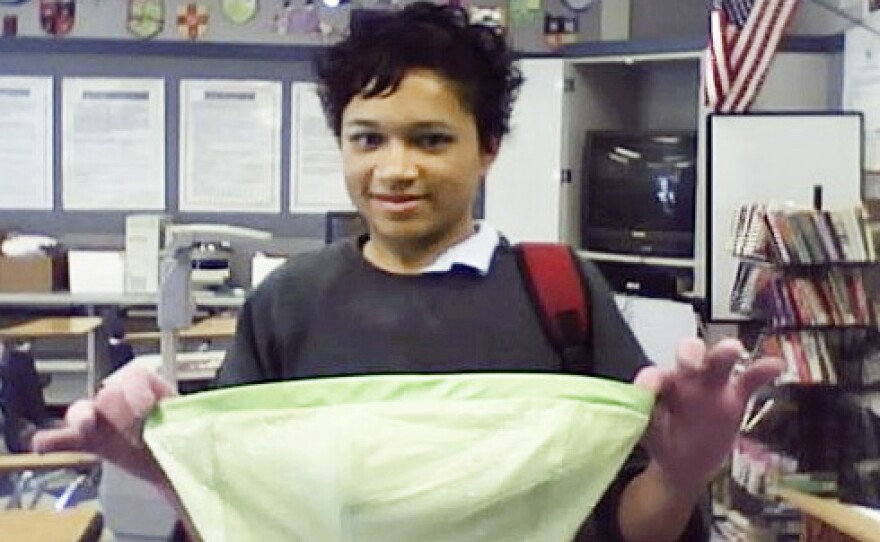

In February 2008, 14-year-old Larry King walked up to fellow classmate Brandon McInerney, and, as a dare, asked him to be his Valentine.
A few days later, on Valentine's Day, King was killed. McInerney shot him twice in the back of the head during the school day. McInerney is now jailed, serving a 21 year sentence for the crime. The new HBO documentary, Valentine Road, explores the life and death of Larry King.
It is director Marta Cunningham's first film, and she spent four years making it. Cunningham tells NPR's Celeste Headlee that her years of research and interviews transformed the way she viewed the crime, the victim, and - most surprisingly -- the shooter. "I couldn't help but feel a tremendous amount of empathy for this child," Cunningham says, "and I always felt a tremendous amount of empathy for Larry because of how misunderstood he was."
Interview Highlights
On learning about Larry
From what I found out about Larry, it was really a gender expression and gender identity, kind of, exploration that he was going through. Not so much his sexuality, which I didn't know until really much later when I started working with the gay and lesbian center in Los Angeles ... Two weeks before his death, he was wearing the [school] uniform still, but wearing heels and wearing make up, doing his hair in a feminine manner with a bow sometimes, earrings, you know, dangly chandelier earrings, which were actually pretty cute. So I felt that that was even more shocking to me. That this was something that really was dealing with femininity, and what was so wrong about being feminine?
On shooter, Brandon McInerney
Some people still do feel that he's a threat to society, and others understand that he was a boy, and therefore should be treated as such. I think it lies somewhere in the middle. I really don't know. I'm not a psychologist, but I can tell you that, I talked to [prosecuting attorney] Maeve [Fox] yesterday and one of the things that she repeated to me was, "if he's doing this at 14, then who is he going to be at 24, 34 and 44?"
Brandon is a self-avowed white supremacist, from what his mother says. But I have to say that, being an African-American woman, even with that, I look at the parenting; I look at his environment; I look at the people that he felt were reaching out and helping him. However twisted it may look like to us, that was his family. And so, you know, we have to look at the environments that these people are coming from, who commit these types of crimes. And we have to understand them. Otherwise we are not going to stop the cycle of violence. It won't end.
On the survivors at school
At the time, when I met these kids, they were 13 years old, and some of them had witnessed this horrible crime in the classroom, and really had no one to talk to. It was unbelievable. They had one day of therapy. It was kind of like this, "So, how're you doing?" And most teenagers kind of grunt, and they grunted, and they were going, "Next!"
The kids later on...they were the ones who were asking for forgiveness throughout the film. They were the ones who had the regret, and some of the adults really didn't feel that they needed to be forgiven for the way they treated [Larry]...You know some of these kids are really invisible, and we have to make sure that that doesn't happen. I mean, that's our responsibility -- I think -- as adults.
On what she hopes for the film
The statistics show that more and more kids are coming out earlier, so my goal with this film is to use it as an educational tool, for administration, for teachers. So that they are capable, and you know, managing these types of differences. I mean, if kids are coming out younger, and they're expressing themselves younger, and there are [transgender] prom queens in Huntington Beach, we need to make sure we are having faculty that understand them.
Copyright 2013 NPR. To see more, visit www.npr.org.






